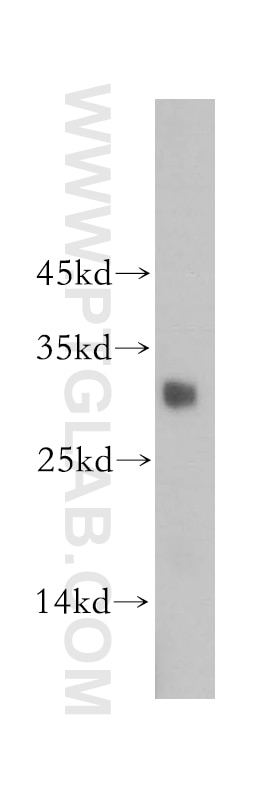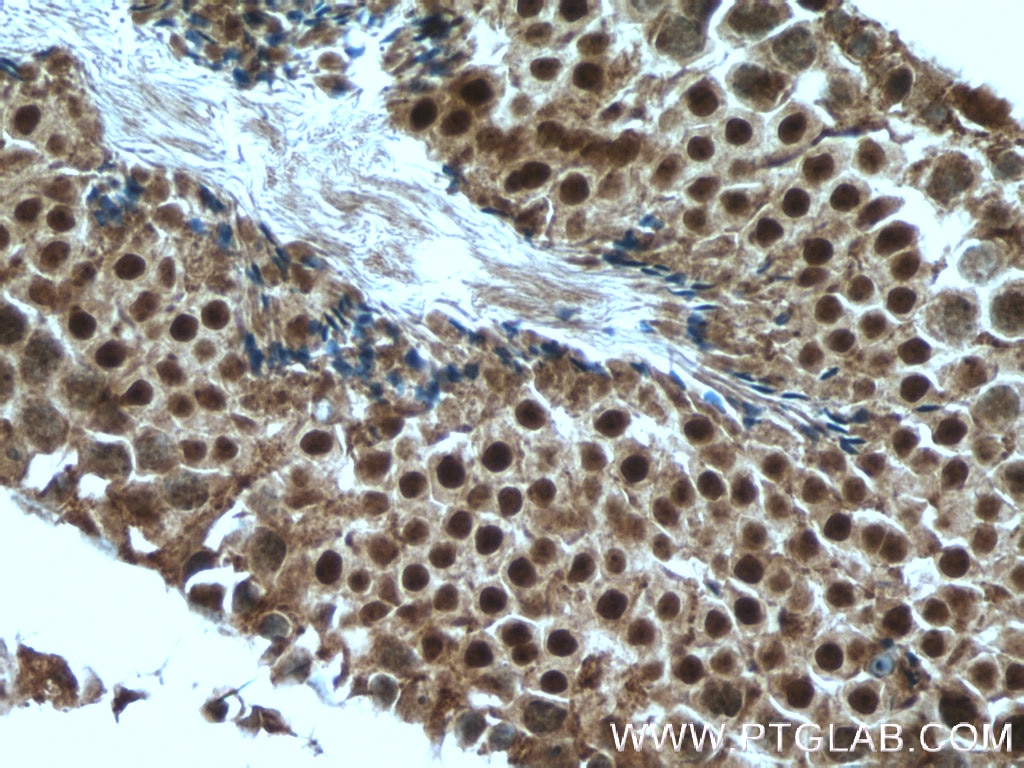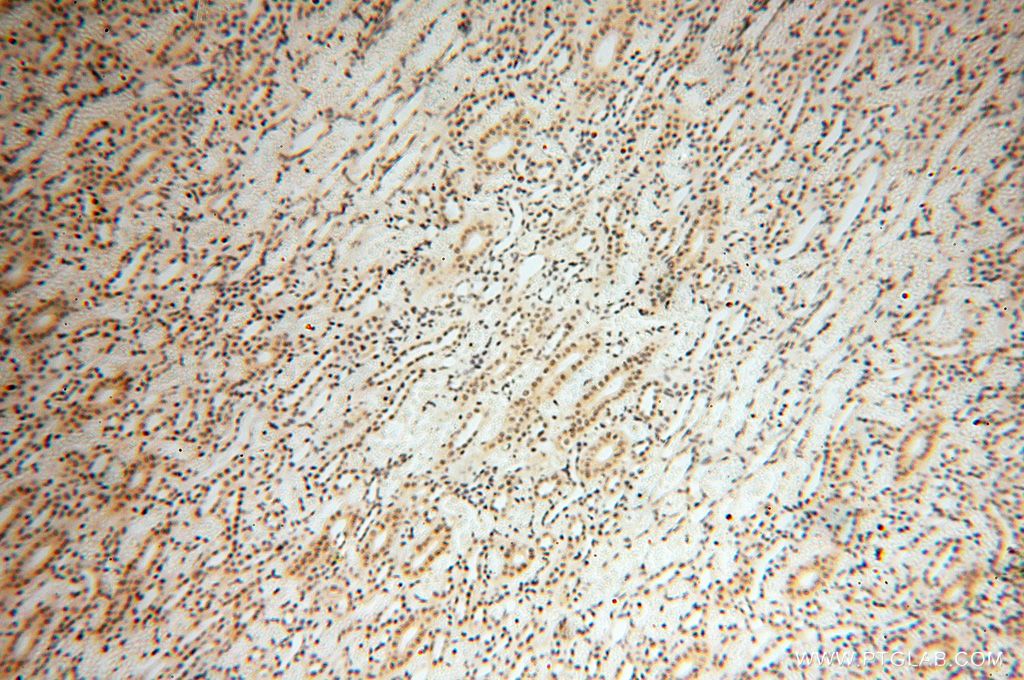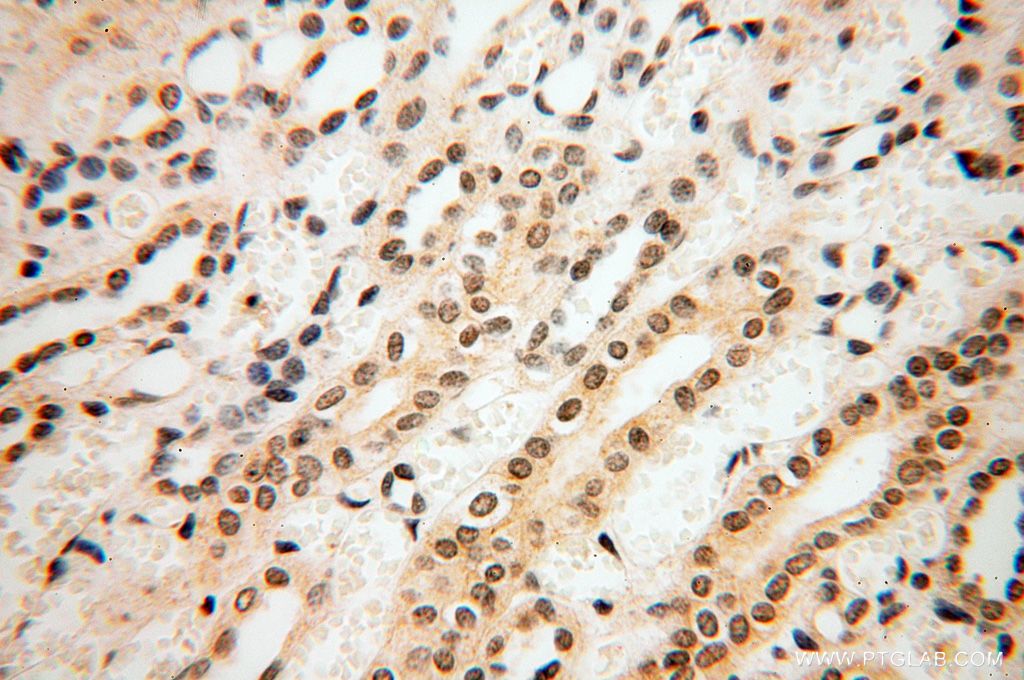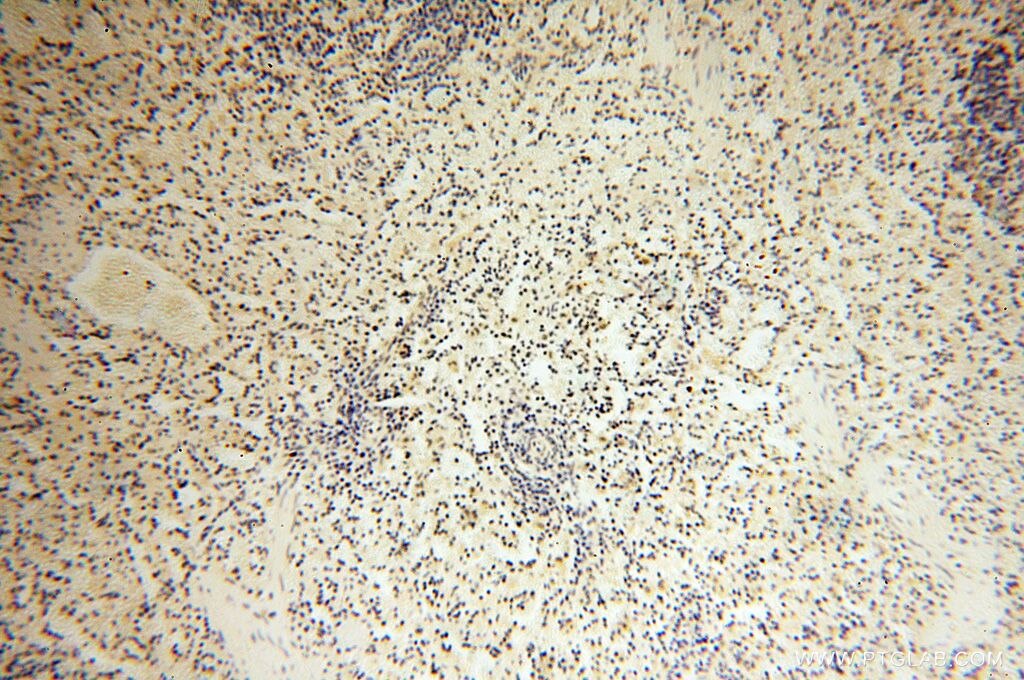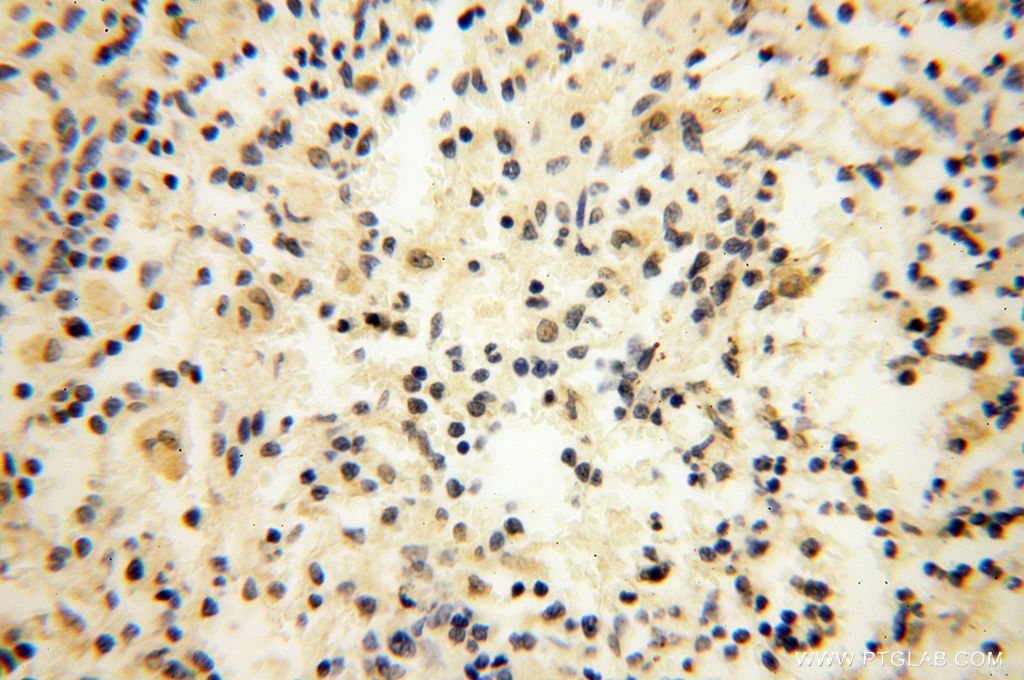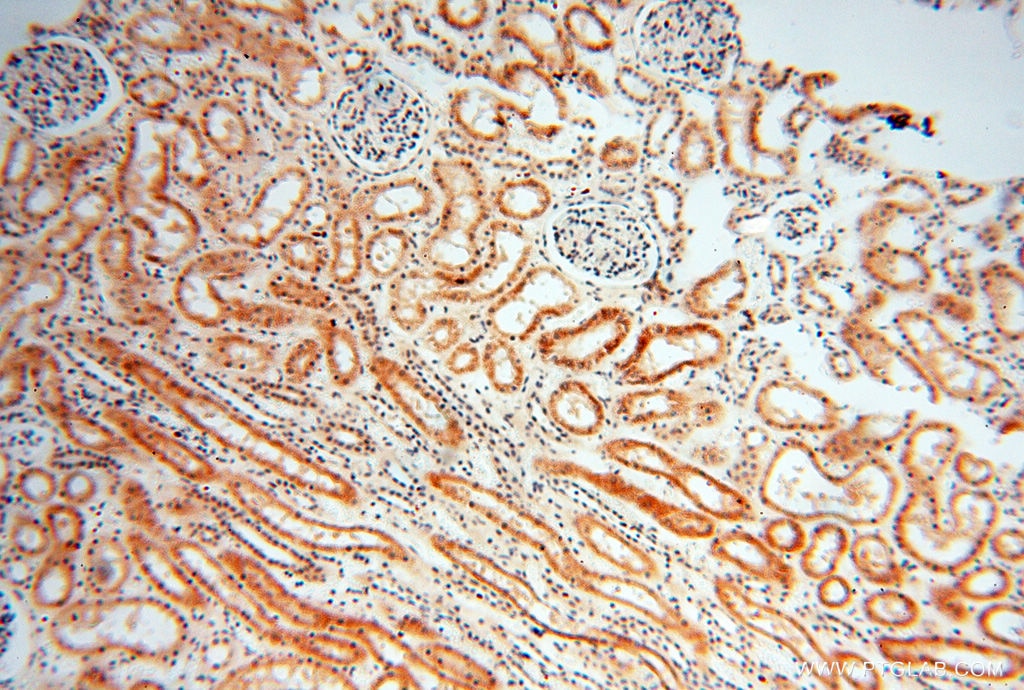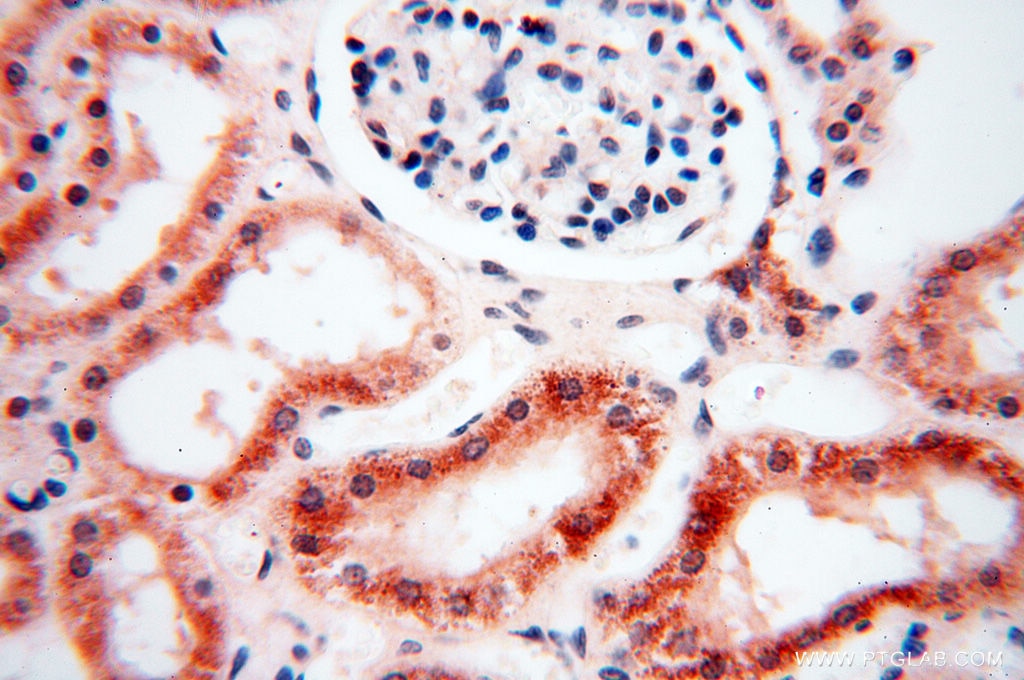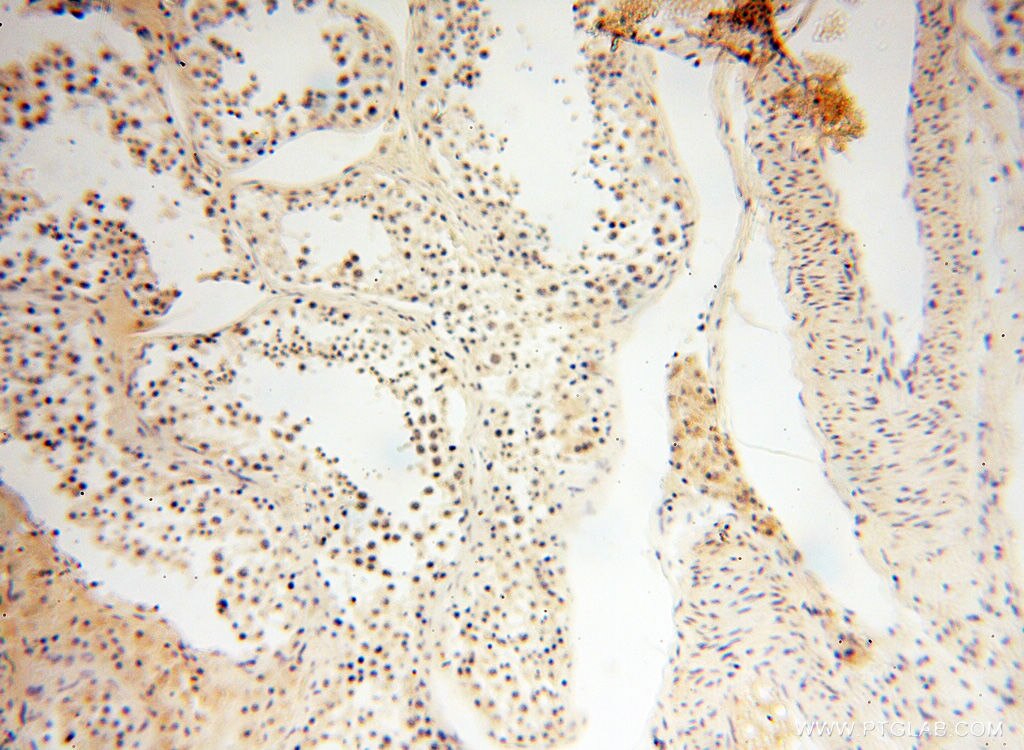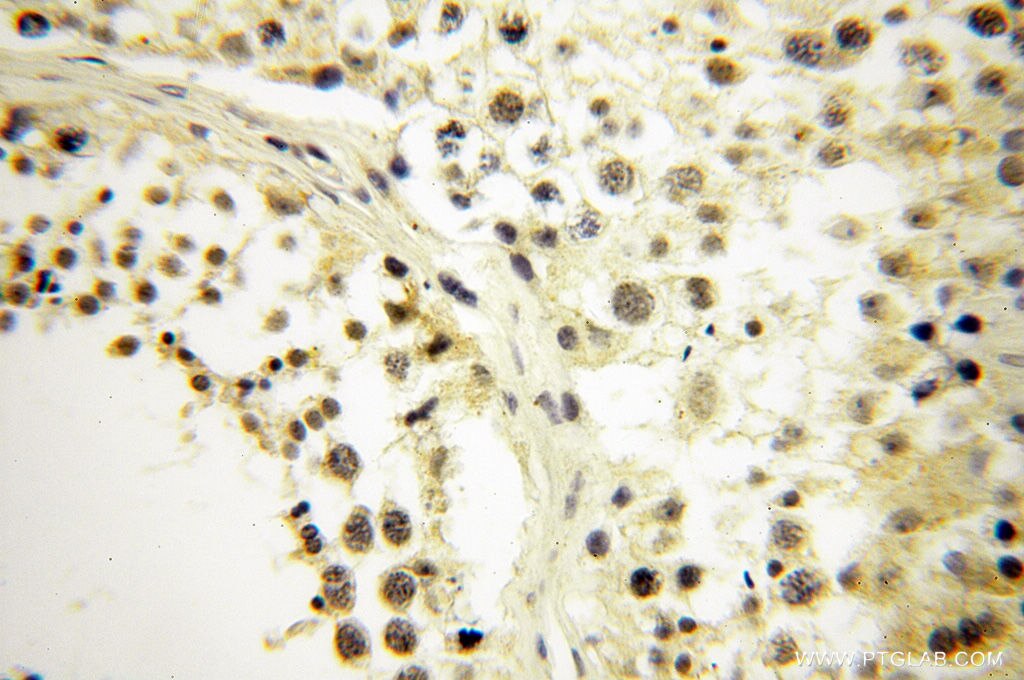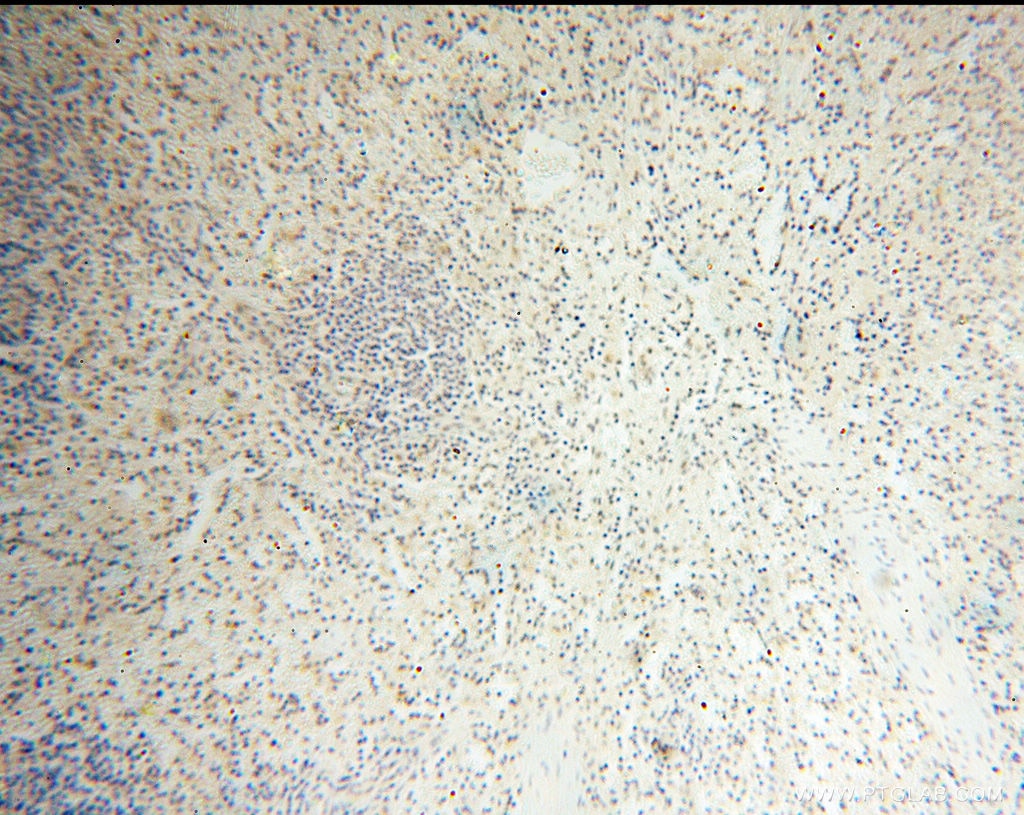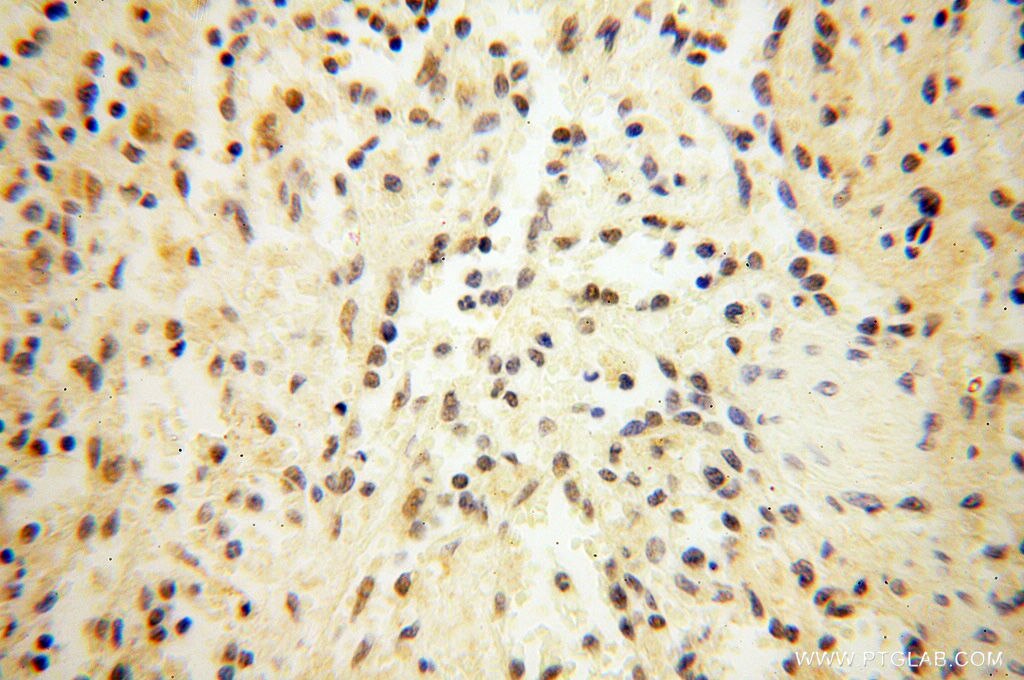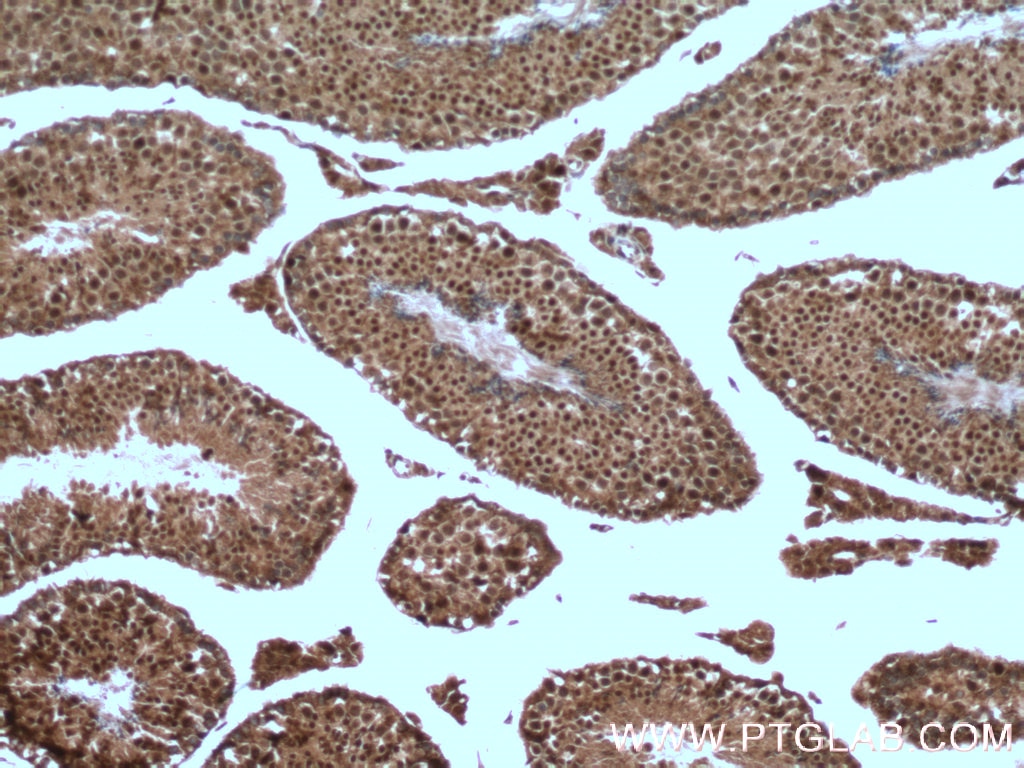Anticorps Polyclonal de lapin anti-SRY
SRY Polyclonal Antibody for WB, IHC, ELISA
Hôte / Isotype
Lapin / IgG
Réactivité testée
Humain, souris
Applications
WB, IHC, ELISA
Conjugaison
Non conjugué
N° de cat : 17930-1-AP
Synonymes
Galerie de données de validation
Applications testées
| Résultats positifs en WB | tissu testiculaire humain |
| Résultats positifs en IHC | tissu testiculaire de souris, tissu rénal humain, tissu splénique humain, tissu testiculaire humain il est suggéré de démasquer l'antigène avec un tampon de TE buffer pH 9.0; (*) À défaut, 'le démasquage de l'antigène peut être 'effectué avec un tampon citrate pH 6,0. |
Dilution recommandée
| Application | Dilution |
|---|---|
| Western Blot (WB) | WB : 1:500-1:1000 |
| Immunohistochimie (IHC) | IHC : 1:50-1:500 |
| It is recommended that this reagent should be titrated in each testing system to obtain optimal results. | |
| Sample-dependent, check data in validation data gallery | |
Informations sur le produit
17930-1-AP cible SRY dans les applications de WB, IHC, ELISA et montre une réactivité avec des échantillons Humain, souris
| Réactivité | Humain, souris |
| Hôte / Isotype | Lapin / IgG |
| Clonalité | Polyclonal |
| Type | Anticorps |
| Immunogène | SRY Protéine recombinante Ag12360 |
| Nom complet | sex determining region Y |
| Masse moléculaire calculée | 204 aa, 24 kDa |
| Poids moléculaire observé | 30 kDa |
| Numéro d’acquisition GenBank | BC074924 |
| Symbole du gène | SRY |
| Identification du gène (NCBI) | 6736 |
| Conjugaison | Non conjugué |
| Forme | Liquide |
| Méthode de purification | Purification par affinité contre l'antigène |
| Tampon de stockage | PBS with 0.02% sodium azide and 50% glycerol |
| Conditions de stockage | Stocker à -20°C. Stable pendant un an après l'expédition. L'aliquotage n'est pas nécessaire pour le stockage à -20oC Les 20ul contiennent 0,1% de BSA. |
Informations générales
SRY (sex-determining region Y protein) is a tran-scriptional activator required for male sex determination in mammals. This protein, also referred to as testis-determining factor (TDF), is an HMG box protein that initiates the formation of testis from undifferentiated gonad. The DNA-binding activity of SRY is required for normal testis formation. This DNA-binding activity is thought to be regulated by PKA, which phosphorylates SRY in vivo. Mutations in SRY have been associated with 46,XY gonadal dysgenesis, in which the gonads fail to develop in XY phenotypic females.
